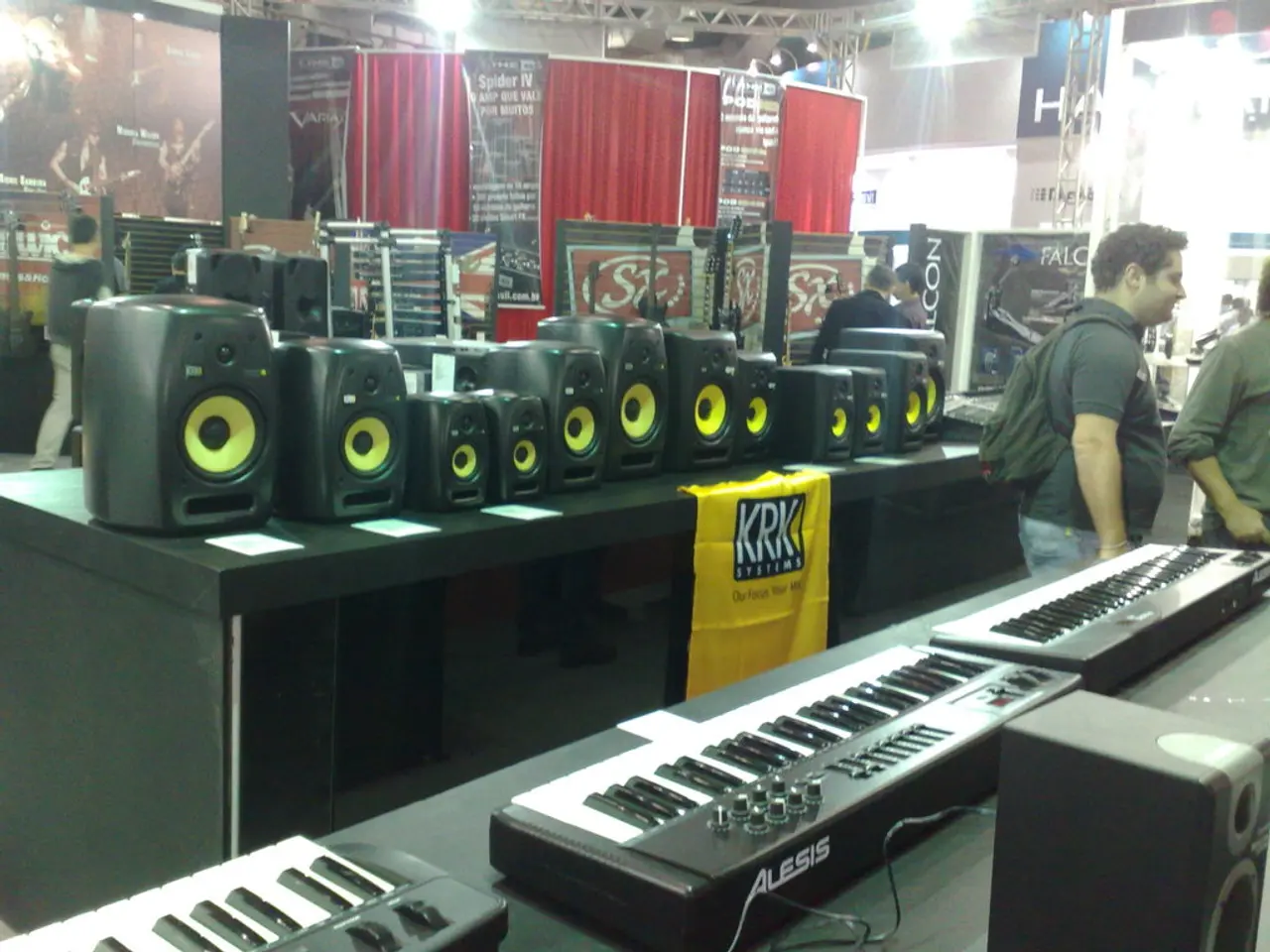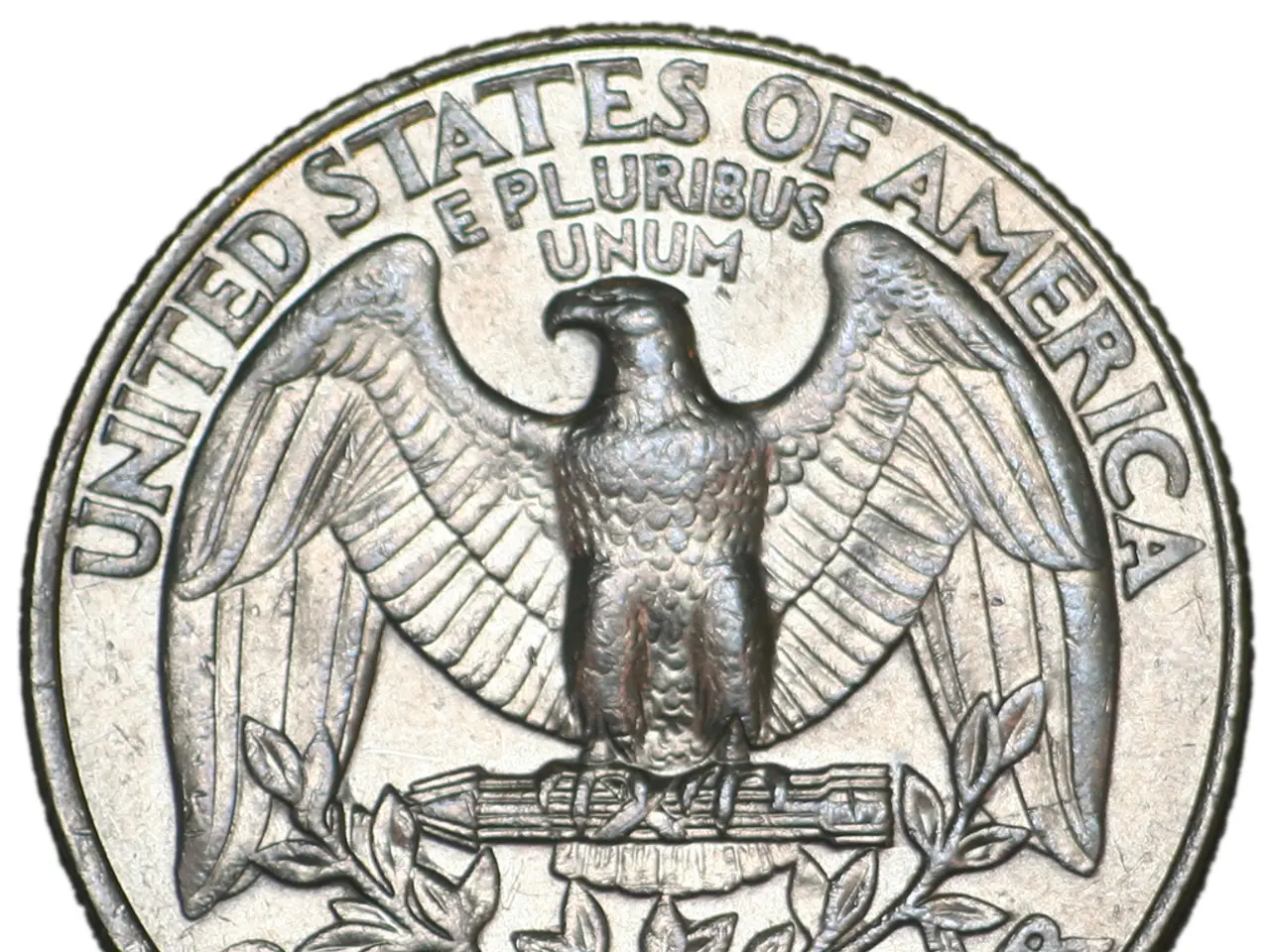Downturn in healthcare sector dragging Wall Street downwards
The Federal Reserve has kept its benchmark interest rate unchanged in its past five meetings due to uncertainties over tariffs and inflation. These uncertainties have cast a shadow over the global economy, including the U.S. markets.
In July, the S&P 500 notched a 2.2% gain, and is up 7.8% so far this year. However, the market experienced a dip on Thursday, with the S&P 500 falling 0.4%, marking its third straight decline. The Nasdaq composite closed less than 0.1% lower on the same day.
The trade landscape has seen some developments recently, with potential pauses in tariff escalations with China and a deal with South Korea. Yet, the ongoing tariff threats continue to inject uncertainty into earnings outlooks and sector performance.
The current impact of tariffs on Wall Street and the broader U.S. economy is somewhat mixed but generally causing cautious sentiment rather than panic. Markets have largely discounted or absorbed recent tariff hikes as a "one-time price level shift," similar to a value-added tax, rather than an ongoing drain on consumer spending power.
However, concerns persist that if economic momentum strengthens, higher tariff rates could become more likely as confidence grows in the administration's agenda.
In the technology sector, while tariffs contribute to volatility, the sector has shown resilience. Major tech companies like Meta Platforms reported strong earnings and surged, indicating investor confidence in some high-value tech stocks despite tariff pressures.
On the other hand, the healthcare sector has faced notable setbacks. Healthcare stocks dropped after the White House requested pharmaceutical companies to cut prices, adding regulatory pressure on top of any tariff-related cost concerns. This sector's weakness helped pull the market down recently, with big pharma and health insurers experiencing significant share declines.
In summary:
- Technology: Volatile but supported by strong earnings; early tariff fears tempered by robust profit reports.
- Healthcare: Declined sharply due to pricing pressures and policy intervention; tariffs a secondary but contributing factor.
- Broader Economy / Wall Street: S&P 500 up year-to-date; tariff effects seen as price level shifts rather than spending erosion; market volatility influenced by recession fears and tariff uncertainty.
Meanwhile, President Trump announced a 90-day negotiating period with Mexico over trade, with 25% tariff rates remaining in place. Inflation, as measured by the personal consumption expenditures index, rose 2.6% in June compared with a year ago.
The design software company Figma soared 250% above its initial public offering price in its stock market debut. Companies including Ford and Hershey's have warned that tariffs are weighing on their latest and projected financial results.
Traders now see a 39% chance of a rate cut at the Fed's next meeting in September, down from previous expectations. Stocks like Eli Lilly & Co., UnitedHealth Group, and Bristol-Myers Squibb experienced significant declines on Thursday.
Microsoft climbed 3.9% after posting better results than analysts expected. The ongoing trade negotiations and their potential impact on various sectors continue to be a topic of interest for investors and economists alike.
[1] Source: CNBC [2] Source: Reuters [3] Source: Bloomberg [4] Source: The Wall Street Journal [5] Source: Yahoo Finance
- The technology sector, despite tariff concerns, has demonstrated resilience, with major companies like Meta Platforms reporting strong earnings and surging, showing investor confidence in high-value tech stocks.
- Conversely, the healthcare sector has faced significant setbacks, with healthcare stocks dropping due to pricing pressures and policy intervention, with tariffs acting as a secondary but contributing factor.
- The broader economy and Wall Street have seen mixed effects from tariffs, with the S&P 500 up year-to-date, but market volatility influenced by recession fears and tariff uncertainty.
- In the stock market, the design software company Figma soared above its initial public offering price, while companies like Ford and Hershey's have warned that tariffs are weighing on their financial results.
- Artificial Intelligence is a growing area of interest in the technology sector, with companies like Microsoft posting better-than-expected results, indicating the potential for significant growth in this area, despite ongoing trade negotiations and their potential impact on various sectors.




